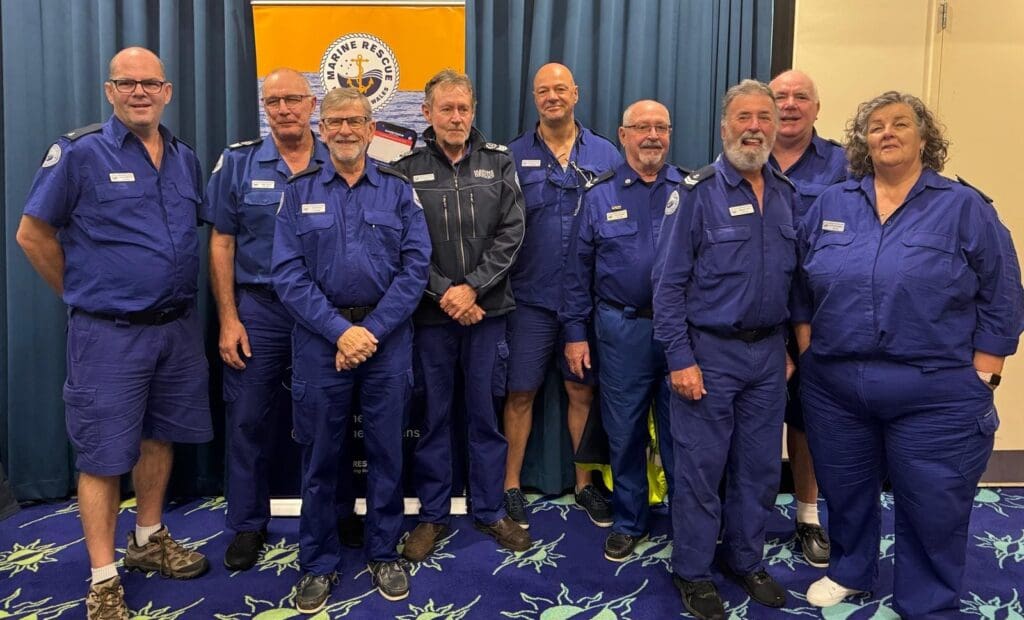It may have been a “simulated exercise”, but for new Marine Rescue Ballina recruit Brad Fisher, it felt like the real deal.
Brad, a retired Qantas 747 captain who moved to Ballina a year ago, was one of dozens of Marine Rescue NSW volunteers who took part in the organisation’s biennial multi-agency training weekend at Tweed Heads.
The event brought together crews from Yamba to the Queensland border, as well as police, surf lifesaving, and emergency services for three days of simulated rescue missions on water and shore.
“I found it a bit overwhelming at first,” Brad admitted. “But it was incredibly satisfying — especially to see how all the different agencies work together in complex situations. It really lifted our understanding to a whole new level.”
Despite being relatively new to the unit, Brad was quick to praise the training and camaraderie that defined the weekend. Volunteers were grouped into mixed teams for a series of realistic scenarios, including people overboard, missing kayakers, and stranded swimmers — all played out in rough sea conditions, just as they might occur in real life.
“Every mannequin was recovered,” he said with a laugh. “But it was challenging. The rough conditions really put crews to the test — and that’s the point. Incidents often occur when conditions are worst, and just like in aviation, you’ve got to train for emergencies so you’re ready when they happen.”
Brad, who spent decades doing simulator-based emergency training with Qantas, said the value of hands-on exercises like this one couldn’t be overstated.
“Use it or lose it — that’s how it is with safety procedures,” he said. “And it was great to see how professional staff and volunteers from different services blended their knowledge to make the weekend a success.”

The Ballina team, made up of radio operators and boat crew, included Paul Griffith, Gary Nichol, Peter Hill, Geoff Hutchinson, Frank Petsch, Deputy Unit Commander Rick Weber, Phil Wilk, and Vicki Blundell. Together, they represented one of the most active units in the region — but like many community-based organisations, they’re always on the lookout for new volunteers.
Brad couldn’t recommend it more.
“I’ve flown all over the world, but joining Marine Rescue has been one of the best ways I’ve found to connect with a new community,” he said. “There’s a great sense of purpose and teamwork, and you don’t need the skills of a pilot — I’ve met people from all sorts of backgrounds. Office workers, school teachers, truck drivers, nurses, paramedics — everyone’s welcome.”
He said the training was well-structured and supportive, and roles were available not just on the water but in the radio room and lookout tower, too.
“It’s a challenge, but not overwhelming. It keeps the brain active, it keeps your skills sharp, and it makes a difference.”
As the weekend wrapped up, Brad said he left with more confidence, a few new friends, and a deeper appreciation for what Marine Rescue NSW does every day — often quietly, behind the scenes.
“And if you’re thinking about joining?” he added, “Do it. You won’t regret it.”
Main Photo: Geoff Hutchinson


Great article – thanks!
Excellent and interesting article that helps to make us a community. Great advertisement for a worthy organisation. Well done as usual.
That’s our Brad 😁. Thanks to all the members who attended the Sarex/Sardex. Valuable training to pass on to all our members.